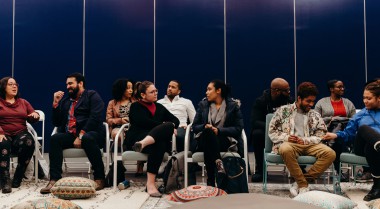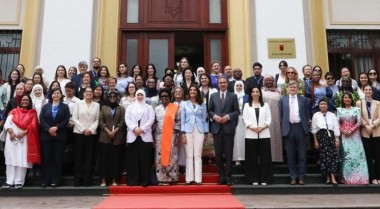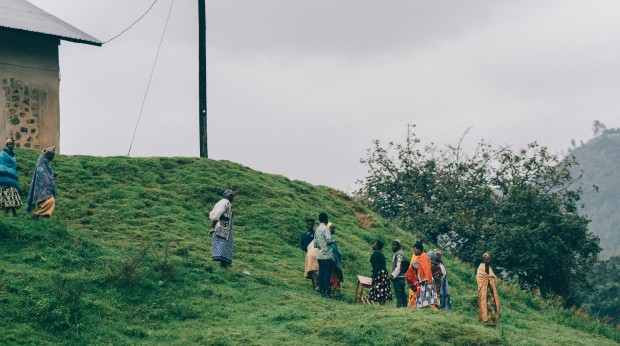
2025 Peacebuilding Architecture Review
In 2025, the UN once again takes stock of global peacebuilding and sustaining peace efforts, focusing on the implementation and impact of its action at the field level (click here to read the Terms of Reference).
The 2020 dual resolutions on Peacebuilding and Sustaining Peace (A/RES/75/201-S/RES/2558) mandate ‘a comprehensive review of United Nations peacebuilding in 2025’ (OP5). Unlike the procedural resolution in 2020, the outcome document of the 2025 PBAR has the potential to unpack further the concept of ‘peacebuilding and sustaining peace’ by building on developments since the 2015 PBAR and the 2016 dual resolutions on Peacebuilding and Sustaining Peace (A/RES/70/262-S/RES/ 2282).
The UN Peacebuilding Architecture aims to support governments and their peoples as they seek to “prevent the outbreak, escalation, continuation, and recurrence of conflict, address root causes, ensure national reconciliation, and move towards recovery, reconstruction, and development” (S/RES/2282, PP8).
As GPPAC, we argue that ‘effective peacebuilding must involve the entire United Nations system’ (A/RES/70/262-S/RES/2282, PP16) as well as national governments, civil society, and regional organizations amongst other stakeholders.
>> Click here to learn more about the UN Peacebuilding Architecture Review and why it matters for local peacebuilders!
What are GPPAC’s recommendations for the 2025 PBAR Outcome Document?
As GPPAC, we believe that the 2025 PBAR outcome document should focus on the following four priorities:
- Supporting the role of local peacebuilders as critical stakeholders in peacebuilding and sustaining peace;
- Unpacking what inclusive national ownership and leadership in peacebuilding and sustaining peace means;
- Advancing the role of the UN field presences in advancing peacebuilding and sustaining peace;
- Strengthening the Peacebuilding Commission;
- Strengthening the impact of the UN Peacebuilding Architecture at the field level.
Concrete action for each of these priorities can be found in the following resources:
- GPPAC General Recommendations for the 2025 PBAR Outcome Document
- Recommendations for strengthening the implementation of the YPS Agenda by the UN Peacebuilding Architecture
- Recommendations for strengthening the implementation of the WPS Agenda by the UN Peacebuilding Architecture
What is GPPAC's vision of the 2025 PBAR Outcome Document?
The GPPAC network’s position is based on our substantial contribution to the informal phase of the 2025 PBAR through the following submissions:
Thematic submissions:
- Overarching messages:
- The full vision for the outcome document of the 2025 Peacebuilding Architecture Review (based on GPPAC’s policy insights collected since the 2020 PBAR)
- Grading the United Nations (in partnership with the International Civil Society Action Network (ICAN))
- Lessons Learned from the Operationalising Sustaining Peace roundtable series (in partnership with the Dag Hammarskjold Foundation, Global Network of Women Peacebuilders (GNWP), NYU-Center on International Cooperation, and Norwegian Institute on International Affairs (NUPI).
- Recognising local peacebuilders and their networks as valuable partners in peacebuilding and sustaining peace:
- Why do regional women mediator networks matter? (Statement by the Pacific Women Mediators Network)
- Strengthening of the Peacebuilding Commission:
- Strengthening the role of the UN field presences in the UN Peacebuilding Architecture:
- Concrete steps to support the implementation of Peacebuilding and Sustaining Peace at the country level (with the support of the UK Mission to the UN).
- Strengthening the quantity and quality of financing for peacebuilding:
- Financing for Peacebuilding and Sustaining Peace: Lessons Learned for Impactful and Inclusive Financing for Peacebuilding and Resilience in the MENA Region (in partnership with the Dag Hammarskjold Foundation (DHF) and MENA Coalition on YPS)
- Defining what localisation of peacebuilding and sustaining peace means:
- How to do Localisation? Making Global Peacebuilding and Development Policies Relevant (in partnership with Conflict Resolution (CECORE), Permanent Mission of the Netherlands to the United Nations, and Quaker UN Office.
Regional submissions:
- Lessons Learned and Strategic Operationalisation of Peacebuilding and Sustaining Peace in the Pacific (28 June 2024) >> Click here for the summary note
- Lessons Learned and Strategic Operationalisation of Peacebuilding and Sustaining Peace in Latin America and the Caribbean (18 October 2024) >> Click here to read the summary note (also available in Spanish)
- Lessons Learned and Strategic Operationalisation of Peacebuilding and Sustaining Peace in Eastern and Central Africa (11 November 2024) - forthcoming
- Lessons Learned and Strategic Operationalisation of Peacebuilding and Sustaining Peace in Niger (17 December 2024) >> Click here to read the summary note (also available in French)
Dialogues:
- The Second CSO-UN Dialogue on Peacebuilding (12-13 December 2024) >> click here for the complete overview of GPPAC members' input




